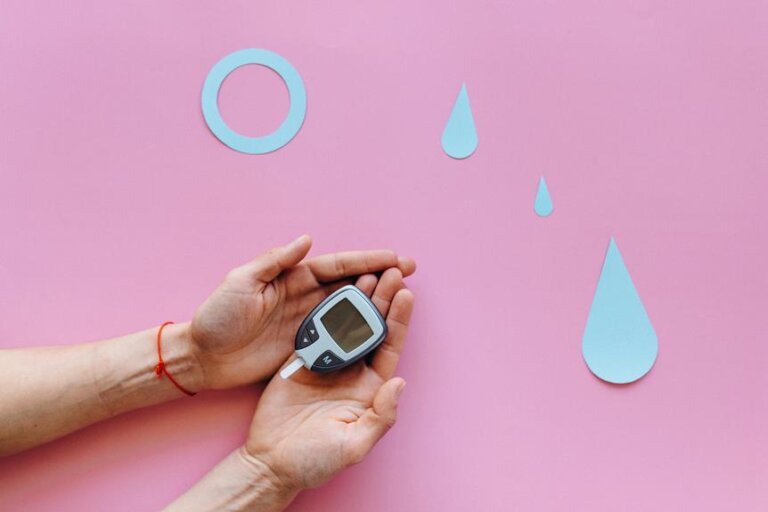The Link Between Prediabetes and Heart Disease: What You Need to Know
So, you think that prediabetes is just a minor concern with no real consequences? Think again. The connection between prediabetes and heart disease is a serious one that requires your attention.
Understanding how these two conditions intertwine can be crucial for your overall health. Let's explore the intricate relationship between prediabetes and heart disease to uncover what steps you can take to safeguard your well-being.
Stay informed, and take charge of your health today.
Prediabetes: Definition and Risk Factors
If you're at risk of developing prediabetes, understanding its definition and risk factors is crucial for your health. Prediabetes is a condition where your blood sugar levels are higher than normal but not high enough to be classified as diabetes. It serves as a warning sign that you're on the path to developing type 2 diabetes if you don't make lifestyle changes.
Risk factors for prediabetes include being overweight, having a sedentary lifestyle, being over the age of 45, having a family history of diabetes, and having high blood pressure or abnormal cholesterol levels. Additionally, ethnicity plays a role, with African Americans, Hispanic/Latino Americans, American Indians, Pacific Islanders, and some Asian Americans being at higher risk.
Impact of Prediabetes on Heart Health
When it comes to your heart health, understanding the impact of prediabetes is crucial.
Knowing the risk factors associated with prediabetes can help you take proactive steps to prevent heart disease.
Risk Factors Overview
Prediabetes significantly increases the risk of developing heart disease, highlighting the crucial connection between these two health conditions. Factors like high blood pressure, abnormal cholesterol levels, obesity, and lack of physical activity further elevate this risk.
In prediabetes, the body struggles to regulate blood sugar levels, leading to inflammation and damage to blood vessels over time. This vascular damage can increase the likelihood of plaque buildup in arteries, raising the risk of heart attacks and strokes. Additionally, prediabetes often coexists with other risk factors like smoking and poor diet choices, compounding the dangers to heart health.
Being aware of these risk factors and taking proactive steps to address them can significantly reduce the chances of developing heart disease.
Prevention Strategies
To safeguard your heart health from the impact of prediabetes, implement proactive prevention strategies. Start by making healthy lifestyle choices such as eating a balanced diet low in sugar and saturated fats. Incorporate regular exercise into your routine, aiming for at least 150 minutes per week. Maintain a healthy weight to reduce the strain on your heart and blood vessels.
Monitor your blood sugar levels regularly and attend check-ups with your healthcare provider. If you smoke, take steps to quit to decrease your risk of heart disease. Manage stress through relaxation techniques like deep breathing or meditation.
Understanding Insulin Resistance in Prediabetes
When you have prediabetes, your body's cells don't respond well to insulin, leading to higher blood sugar levels. Understanding how insulin resistance affects your blood sugar control is crucial in managing your prediabetes.
Insulin Role in Prediabetes
Understanding the role of insulin in prediabetes is crucial for grasping the development of insulin resistance in this condition. Insulin is a hormone produced by the pancreas that helps regulate blood sugar levels by facilitating the uptake of glucose into cells for energy.
In prediabetes, your body becomes less sensitive to the effects of insulin, leading to higher blood sugar levels. This decreased sensitivity can result from various factors like genetics, obesity, and sedentary lifestyle.
As insulin resistance progresses, the pancreas tries to compensate by producing more insulin, which can eventually lead to fatigue of the pancreatic cells. By understanding how insulin resistance develops, you can take proactive steps to manage your prediabetes and reduce the risk of heart disease.
Impact on Blood Sugar
Insulin resistance in prediabetes significantly impacts blood sugar levels, highlighting the critical connection between insulin function and glucose regulation. When your cells become resistant to the effects of insulin, they don't respond well to the hormone, leading to elevated levels of sugar in your blood.
This can result in a vicious cycle where your pancreas produces more insulin to try to lower blood sugar, but the cells remain unresponsive. As a consequence, your blood sugar levels remain high, increasing the risk of developing type 2 diabetes and other complications.
Understanding this link is crucial in managing prediabetes and preventing further progression to more serious health issues like heart disease.
Managing Insulin Resistance
To effectively manage insulin resistance in prediabetes, focus on strategies that enhance your body's response to insulin and improve blood sugar control. Insulin resistance occurs when your cells don't respond properly to insulin, leading to elevated blood sugar levels.
To combat this, prioritize regular physical activity, which helps your muscles use glucose more effectively. Additionally, opt for a balanced diet rich in whole grains, fruits, vegetables, lean proteins, and healthy fats to support optimal insulin function. Limit refined sugars and processed foods that can spike blood sugar levels.
Monitoring your blood sugar levels regularly can also provide valuable insights into how your body responds to different foods and activities. By taking these proactive steps, you can better manage insulin resistance and reduce your risk of heart disease.
Biomarkers for Heart Disease Risk Assessment
When assessing the risk of heart disease, biomarkers play a crucial role in providing valuable insights into an individual's health. These biomarkers are measurable substances in the body that can indicate the presence of heart disease or the likelihood of developing it.
One commonly used biomarker is high-sensitivity C-reactive protein (hs-CRP), which can indicate inflammation in the body, a key factor in heart disease development. Another important biomarker is N-terminal pro-B-type natriuretic peptide (NT-proBNP), which can help assess heart function and detect heart failure risk. Additionally, lipoprotein-associated phospholipase A2 (Lp-PLA2) is a biomarker associated with vascular inflammation and can predict the risk of heart attack and stroke.
Lifestyle Changes to Prevent Heart Disease
Making small but impactful changes to your daily habits can significantly reduce your risk of heart disease. Start by incorporating a heart-healthy diet rich in fruits, vegetables, whole grains, lean proteins, and healthy fats. Limit your intake of processed foods, sugary drinks, and excessive salt to keep your heart in top shape.
Quitting smoking is another crucial step towards preventing heart disease. Smoking damages your blood vessels and increases the risk of atherosclerosis, a leading cause of heart attacks.
Managing stress levels is also vital for heart health. Practice relaxation techniques such as deep breathing, meditation, or yoga to reduce stress and lower your risk of heart disease. Getting an adequate amount of quality sleep each night is equally important. Poor sleep can contribute to high blood pressure and inflammation, both of which are linked to heart disease.
Lastly, staying hydrated and engaging in regular physical activity can further decrease your risk of heart disease. By making these lifestyle changes, you can take proactive steps to protect your heart health.
Importance of Regular Physical Activity
Incorporating regular physical activity into your routine is crucial for maintaining a healthy heart and reducing the risk of heart disease. Engaging in activities like brisk walking, jogging, cycling, or swimming not only helps in managing weight but also improves cardiovascular health. Aim for at least 150 minutes of moderate-intensity exercise per week to keep your heart strong and lower the chances of developing heart disease.
Regular physical activity helps in lowering blood pressure, improving blood circulation, and reducing levels of LDL cholesterol (the 'bad' cholesterol) in your body. It also boosts your overall mood and energy levels, enhancing your quality of life. Additionally, exercise can help in managing prediabetes by improving insulin sensitivity and regulating blood sugar levels.
Make physical activity a priority in your daily schedule by finding activities you enjoy and making them a regular part of your routine. Remember, even small changes like taking the stairs instead of the elevator or going for a short walk during your lunch break can make a significant difference in your heart health.
Role of Diet in Managing Prediabetes and Heart Disease
Optimizing your dietary choices plays a crucial role in managing prediabetes and heart disease risk factors. A diet rich in whole grains, fruits, vegetables, lean proteins, and healthy fats can help control blood sugar levels and reduce the risk of heart disease.
Incorporating foods high in fiber, such as oats, beans, and nuts, can aid in improving blood sugar control and lowering cholesterol levels. Limiting the intake of sugary beverages, processed foods, and saturated fats is essential in managing prediabetes and preventing heart complications.
Additionally, reducing sodium intake can help manage blood pressure, another important factor in heart health. Opt for fresh herbs and spices to flavor foods instead of salt. Maintaining a balanced diet with appropriate portion sizes is key. Be mindful of your carbohydrate intake, focusing on complex carbohydrates like whole grains over simple sugars.
Monitoring and Managing Blood Sugar Levels
To effectively monitor and manage your blood sugar levels, it's essential to adopt a consistent routine of testing and tracking your glucose levels throughout the day. Regular monitoring allows you to understand how your body responds to different foods, activities, and medications. Begin by checking your blood sugar levels at key times, such as before meals, after meals, before bedtime, and if you feel any symptoms of high or low blood sugar.
Keep a detailed record of your readings, including the time of day, corresponding meals, and any relevant activities. This information can help you and your healthcare provider make informed decisions about your treatment plan. If you notice any patterns of blood sugar spikes or dips, adjustments can be made to your diet, exercise routine, or medication regimen.
Additionally, stay mindful of factors that can affect your blood sugar levels, such as stress, illness, and changes in physical activity. By staying proactive and informed, you can effectively manage your blood sugar levels and reduce your risk of developing heart disease associated with prediabetes.
Frequently Asked Questions
How Does Stress and Mental Health Play a Role in the Link Between Prediabetes and Heart Disease?
Stress and mental health can affect the link between prediabetes and heart disease. High stress levels and poor mental health may contribute to unhealthy habits, like overeating or lack of exercise, which can increase the risk of developing heart issues.
Are There Any Specific Supplements or Vitamins That Can Help Prevent or Manage Prediabetes and Heart Disease?
You can consider supplements like omega-3 fatty acids, magnesium, and vitamin D to help manage prediabetes and heart disease. These can support heart health, improve insulin sensitivity, and lower blood sugar levels.
Can Prediabetes Be Reversed Completely, and if So, What Are the Key Steps to Achieving This?
Yes, prediabetes can be reversed completely. To achieve this, focus on lifestyle changes like a balanced diet, regular exercise, and weight management. Stay consistent with healthy habits, monitor blood sugar levels, and consult with healthcare professionals for guidance.
Are There Any Alternative Therapies or Treatments That Can Complement Traditional Medical Interventions for Prediabetes and Heart Disease?
Imagine your health journey as a puzzle; alternative therapies, like pieces, can complement traditional treatments for prediabetes and heart disease. From mindful eating to acupuncture, exploring options with your healthcare team may enhance your wellness.
How Does Age and Genetics Factor Into the Development of Prediabetes and Heart Disease, and What Can Individuals Do to Mitigate These Risks?
Age and genetics play key roles in prediabetes and heart disease development. You can mitigate risks by maintaining a healthy lifestyle, including regular exercise, balanced diet, and routine check-ups. Be proactive in managing these factors for better health.
Conclusion
Now that you know the link between prediabetes and heart disease, it's time to take action to protect your heart health.
Just like a well-maintained garden yields beautiful flowers, taking care of your body with healthy habits can lead to a strong and vibrant heart.
Remember, prevention is key, so start making small changes today to reap the benefits of a healthier future. Your heart will thank you!





